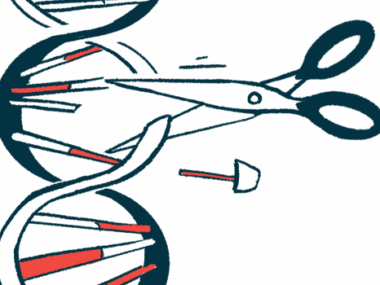Study emphasizes need for holistic support for rare disease patients
Findings point to weaknessess in proposed EU pharma reform legislation
Written by |

People affected by rare diseases like aromatic L-amino acid decarboxylase (AADC) deficiency require more than just medical support: These patients and their caregivers need a holistic approach that also addresses several unmet needs, such as providing social and financial assistance.
That’s according to a new study, “Criteria to evaluate unmet health-related needs of persons living with rare diseases and their caregivers: rapid literature review and stakeholder consultations,” that reviewed more than 250 published articles. The work, by investigators at KU Leuven, a research university in Belgium, was published in the Orphanet Journal of Rare Diseases.
The study’s findings point to weaknesses in pharma reform legislation that’s now being considered in the European Union, the researchers say. That legislation focuses on addressing medical concerns but fails to address other needs, the team notes.
“[The proposed policy] remains primarily focused on pharmaceutical interventions, overlooking other critical aspects, such as access to healthcare services, social support, and financial assistance for patients and their caregivers,” the researchers wrote.
The team says the findings of their study emphasize “the importance for healthcare policies to adapt a holistic, patient-centred approach that prioritizes improved psychological health, autonomy, timely diagnosis, accessibility to care, and financial support for patients and their caregivers.”
According to the researchers, by responding to these diverse needs, “policymakers can enhance the quality of life for persons living with rare diseases and their caregivers and foster a more inclusive healthcare framework.”
Rare diseases like AADC deficiency pose unique problems specifically because they are rare — it can be hard to get information, clinicians often lack expertise, and access to good care isn’t guaranteed.
Here, the research team conducted a review of 272 studies that assessed the unmet needs of people with AADC deficiency and a wide range of other rare disorders; most of these studies were published within the last decade. The scientists also conducted consultations with 72 stakeholders in rare disease communities, including patient organizations, pharmaceutical companies, and regulatory authorities.
Study notes 11 main types of unmet need in rare disease care
Based on their findings, the team outlined 11 key types of unmet needs that affect many people with rare diseases. These included unmet needs related to physical and mental health; people with rare diseases also often lack an ability to act autonomously, the data showed.
Deficiencies were also identified in patients’ interactions with healthcare systems — for one, there’s a need for more timely diagnoses and for more treatments to become available, per the study. The researchers noted that access to integrated, multidisciplinary healthcare is a key need for many patients that’s often not adequately addressed.
“The absence of well-coordinated clinics forces patients to visit multiple specialists, creating inefficiencies and reducing the quality of care,” the researchers wrote.
Patients also had unmet social needs, including a need for more social support, and for reducing stigma. Additional resources are also needed for navigating education, work, and financials, according to the study.
Better holistic care could help ease caregiver burden, per study
In addition to the key unmet needs for patients, the study also highlighted four key unmet needs of caregivers: mental health, physical health, social connections, and financial resources.
The scientists noted that rare disease patient organizations can play key roles in addressing these unmet needs: “These organisations provide peer networks, information resources, and support materials,” they wrote. “Furthermore, most disease-specific patient organisations offer specialized services, such as physiotherapy programs, support materials, or assistance with ergonomic home adaptations.”
The findings of this study advocate for a more holistic approach in health policy, particularly for rare diseases, where accurate diagnosis, multidisciplinary, and nonpharmaceutical interventions are critical to better address the complex and varied needs of persons living with rare diseases.
However, access to patient organizations is variable — and these organizations “often face limited resources themselves, which restricts their capacity to provide assistance,” the researchers noted.
Based on their findings, the scientists are calling for government policies that more fully capture patient experiences, rather than focusing only on investing in developing new medicines.
“The findings of this study advocate for a more holistic approach in health policy, particularly for rare diseases, where accurate diagnosis, multidisciplinary, and nonpharmaceutical interventions are critical to better address the complex and varied needs of persons living with rare diseases,” the team wrote.







